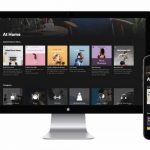- Installs peak for Shopping apps just before Ramadan, while revenue is highest in the second week of the holy month (Ramadan is from 24 April 2020 to 23 May 2020).
- All verticals need to be careful to guard against fraud, with finance apps most susceptible.
- App marketers should be mindful during the first week of Ramadan, when Muslims focus their attention on more spiritual matters: Entertainment revenue and installs climb just before Ramadan, but drops sharply in the first week.
- Weekly overall app installs from January 19 till March 14 remain largely steady, but it is likely that COVID-19’s impact will be felt stronger in the weeks leading up to Ramadan.
- Travel revenue peaks two weeks before Ramadan and just before Hari Raya, with a possible gov’t-imposed movement restrictions impeding this trend.
AppsFlyer, the global leader in mobile attribution and marketing analytics, today released its second Ramadan Report, which analyses mobile app consumer behaviour and app marketing across Indonesia, Malaysia, and Singapore in the Ramadan period of 2019.
“Based on our 2019 data, revenue is seen to grow during the Ramadan period with the hope that many employees will be receiving bonuses. Combined with more leisure time, these holiday incentives have always allowed people to become more excited about spending time with family and friends through traveling or shopping.
Though our preliminary 2020 numbers show that weekly app installs are largely steady – COVID-19’s stronger impact could take effect in the weeks leading up to Ramadan, as the marketplace is forced to adjust to new norms such as expanded work-from-home arrangements and travel restrictions. There will be sectors of the economy that will bear the brunt of today’s economic challenges, but this also presents immense opportunities especially for app marketers in the in-home vertical, such as gaming and food delivery to name a few,” stated Ronen Mense, President and Managing Director of AppsFlyer, APAC.
The report considers apps that have at least 250 installs each week over 12 week periods that cover the Ramadan period in 2019, compared with the same period in 2018. It highlights the metrics for the top four app categories—Shopping, Travel, Entertainment and Finance—and outlines how they’ve trended along these key indicators in 2019.
Key highlights from the report include:
Installs peak for Shopping apps just before Ramadan begins. As Muslims tend to consume more in the run-up to Ramadan, Shopping installs within Indonesia, Malaysia and Singapore typically rise just before Ramadan in 2019, presenting a potential opportunity for marketers to increase spending to maximise installs. App installs are seen dropping in revenue and purchase volume in the first week. Whereas, in the second (11%) and third week, purchase volumes hit their high mark during that period as well, coinciding with the time when employees would receive their 13th-month bonuses and make holiday purchases.
Gaming and Entertainment apps do well in the post-Ramadan period. Entertainment apps saw a 7%, then 21% uplift in installs over the first two weeks, while Casual Games saw 2% increases over the same two-week period. In Indonesia, Entertainment apps performed comparatively well, sustaining 6% retention over a 30-day period.
Travel app installs grow weeks before Ramadan. Consumers tend to arrange their travel plans before Hari Raya, which leads to high installs for travel apps.
The first week of Ramadan sees a steep drop in installs and revenue volume. Most categories, particularly Entertainment, should avoid blanketing the first week with too much advertising. However, it is noticeable that opportunities shift from the first week of Ramadan to Hari Raya week.
The last week before Hari Raya is arguably the best opportunity to capitalise with focused marketing, with most categories seeing revenue growth. Typically, 13th month salary bonuses are paid out just before this time and it is tradition to make new purchases for Hari Raya.
It’s crucial to guard against mobile app fraud during the Ramadan months to optimise spend effectiveness. Finance app marketers, in particular, need to seek out fraud protection, as almost half of overall installs are attributed to fraud. Travel (48.3%), Shopping (48.5%), Entertainment (49.7%), and Social (31%) apps also suffer disproportionately and should stay vigilant. Gaming category as a whole seems to enjoy the lowest fraud rates in the region, benefitting from more sophisticated marketing strategies.
Apart from accessing the full report here, AppsFlyer has also prepared a webinar session where in-house experts and panellists answer questions regarding which app insights can help marketers prepare for Ramadan and how COVID-19 has been affecting marketing campaigns. The webinar was moderated by AppsFlyer’s President and Managing Director, APAC, Ronen Mense.
To access the recorded Webinar, kindly register here.














